-
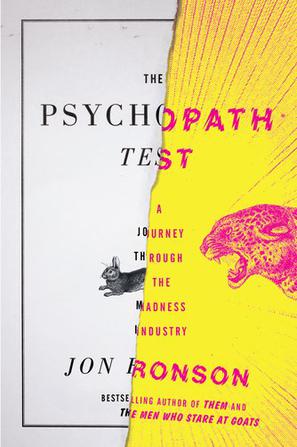
The Psychopath Test
In this madcap journey, a bestselling journalist investigates psychopaths and the industry of doctors, scientists, and everyone else who studies them. The Psychopath Test is a fascinating journey through the minds of madness. Jon Ronson's exploration of a potential hoax being played on the world's top neurologists takes him, unexpectedly, into the heart of the madness industry. An influential psychologist who is convinced that many important CEOs and politicians are, in fact, psychopaths teaches Ronson how to spot these high-flying individuals by looking out for little telltale verbal and nonverbal clues. And so Ronson, armed with his new psychopath-spotting abilities, enters the corridors of power. He spends time with a death-squad leader institutionalized for mortgage fraud in Coxsackie, New York; a legendary CEO whose psychopathy has been speculated about in the press; and a patient in an asylum for the criminally insane who insists he's sane and certainly not a psychopath. Ronson not only solves the mystery of the hoax but also discovers, disturbingly, that sometimes the personalities at the helm of the madness industry are, with their drives and obsessions, as mad in their own way as those they study. And that relatively ordinary people are, more and more, defined by their maddest edges. -
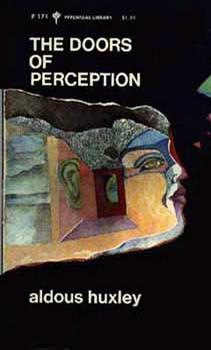
The Doors of Perception
The Doors of Perception is a 1954 book by Aldous Huxley detailing his experiences when taking mescaline. This short book is considered to be one of the most profound studies of the effects of mind-expanding drugs and what they teach about how the mind works. The title comes from William Blake's The Marriage of Heaven and Hell: "If the doors of perception were cleansed,every thing would appear to man as it is, infinite. For man has closed himself up, till he sees all things through narrow chinks of his cavern." -

心理学通史
《心理学通史》分三篇,上篇为心理学思想史;中篇为心理学流派;下篇为心理学新发展。包括近代欧洲的心理学思想、科学心理学的建立、行为主义的演变、精神分析的演变、女性主义心理学和社会建构论心理学等内容。 -
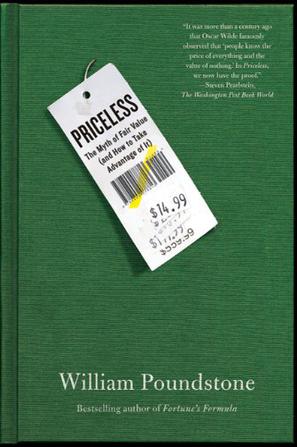
Priceless
Prada stores carry a few obscenely expensive items in order to boost sales for everything else (which look like bargains in comparison). People used to download music for free, then Steve Jobs convinced them to pay. How? By charging 99 cents. That price has a hypnotic effect: the profit margin of the 99 Cents Only store is twice that of Wal-Mart. Why do text messages cost money, while e-mails are free? Why do jars of peanut butter keep getting smaller in order to keep the price the “same”? The answer is simple: prices are a collective hallucination. In Priceless , the bestselling author William Poundstone reveals the hidden psychology of value. In psychological experiments, people are unable to estimate “fair” prices accurately and are strongly influenced by the unconscious, irrational, and politically incorrect. It hasn’t taken long for marketers to apply these findings. “Price consultants” advise retailers on how to convince consumers to pay more for less, and negotiation coaches offer similar advice for businesspeople cutting deals. The new psychology of price dictates the design of price tags, menus, rebates, “sale” ads, cell phone plans, supermarket aisles, real estate offers, wage packages, tort demands, and corporate buyouts. Prices are the most pervasive hidden persuaders of all. Rooted in the emerging field of behavioral decision theory, Priceless should prove indispensable to anyone who negotiates. 点击链接进入中文版: 无价:洞悉大众心理玩转价格游戏 -
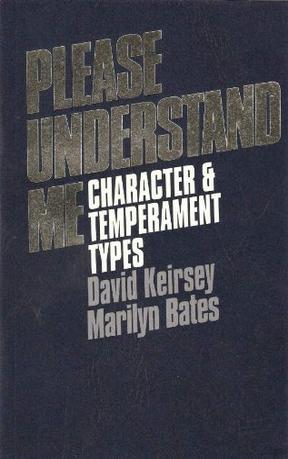
Please Understand Me
Does your spouse's need to alphabetically organize books on the shelves puzzle you? Do your boss's tsunami-like moods leave you exasperated? Do your child's constant questions make you batty? If you've ever wanted to change your mate, your coworkers, or a family member, then "Put down your chisel," advise David Keirsey and Marilyn Bates in this book of personality types. We are different for a reason, and that reason is probably more good than bad. Keirsey and Bates believe that not only is it impossible to truly change others (which they call embarking on a "Pygmalion project"), it's much more important to understand and affirm differences. Sounds easier than it is, you might say. Well, this book is a guide for putting an end to the Pygmalion projects in your life and starting on the path to acceptance. For anyone acquainted with the ubiquitous Myers-Briggs personality test, Please Understand Me will be familiar territory--but gone over with a fine-toothed comb. And for the uninitiated, this book will be a quick introduction to personality typing the Myers-Briggs way--with a Jungian accent. After presenting a brief rundown of 20th-century psychology movements, Keirsey and Bates encourage you to take the 70-question "Keirsey Temperament Sorter," a sort of mini-Myers-Briggs test that places you in 1 of 16 personality types. Like the Myers-Briggs system, this test sorts your personality into groups of extraversion/introversion (E/I), sensation/intuition (S/N), thinking/feeling (T/F), and perceiving/judging (P/J). Unlike the Myers-Briggs system, Please Understand Me also presents four easy-to-remember temperament types--Dionysian (freedom first), Epimethean (wants to be useful), Promethean (desires power), and Apollonian (searches for self)--that underlie the 16 possible personalities identified by the test. The book then delves into a detailed analysis of each type, with sections on mates, children, and leaders. An appendix paints portraits of the 16 possible personality types. Unless you're already a true personality-typing devotee, this book may seem a little esoteric, especially the somewhat "in" references to psychological theory that few laypeople will be likely to understand. But give it a chance and you may find that you'll begin to understand why you always know where to find Anna Karenina on the shelf (you have an ESTJ husband), why your boss is sarcastic one day and praises your achievements the next (she's an NF), and why knowing the reason that the sun comes up in the same place every day is important to your little one (he's Promethean). You may even find that once you accept quirks and ticks in others, they will understand you a little better, too. --Stefanie Durbin -
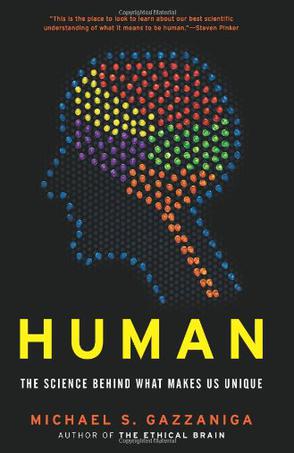
Human
One of the world's leading neuroscientists explores how best to understand the human condition by examining the biological, psychological, and highly social nature of our species within the social context of our lives. What happened along the evolutionary trail that made humans so unique? In his widely accessible style, Michael Gazzaniga looks to a broad range of studies to pinpoint the change that made us thinking, sentient humans, different from our predecessors. Neuroscience has been fixated on the life of the psychological self for the past fifty years, focusing on the brain systems underlying language, memory, emotion, and perception. What it has not done is consider the stark reality that most of the time we humans are thinking about social processes, comparing ourselves to and estimating the intentions of others. In Human, Gazzaniga explores a number of related issues, including what makes human brains unique, the importance of language and art in defining the human condition, the nature of human consciousness, and even artificial intelligence.